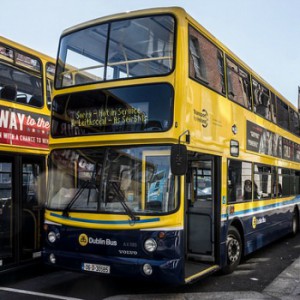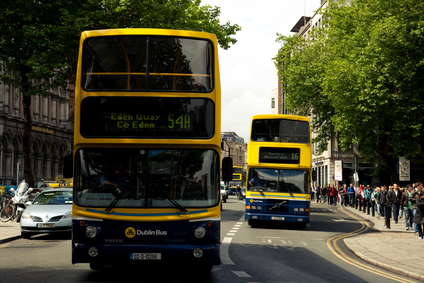
Competitive Tendering For Dublin Bus Services
1 May 2015Overview
In December 2013, the National Transport Authority re-awarded Public Service Obligation contracts to Dublin Bus covering the period up to December 2019, and decided that 10% of the services in the contract would be put out to competitive tender, to commence operations in 2016. We provide a brief description of competitive tendering and its potential merits and drawbacks.
Public Service Obligation (PSO) Payments
Each year public funding is provided to Dublin Bus by way of contract with the National Transport Authority (NTA). This funding is based on the premise that Dublin Bus provides a service which is “socially necessary but financially unviable”1 . In 2013, Dublin Bus received a PSO payment of €64.5million which amounts to 24% of the company’s revenue for that year. The PSO payment for 2015 is projected at €60 million. The PSO payments have declined steadily from a peak in 2008 of €85.6 million.
Deloitte Report
In 2009 Deloitte issued a report which examined cost and efficiency in Dublin Bus. According to Deloitte, the subsidy paid to Dublin Bus is generally lower than public subsidies paid to comparable bus operations in cities outside Ireland2 . Table 1 compares operational subvention as a percentage of total revenue across six European cities. The bus subvention in Dublin is shown to be the lowest of the six cities which include; Lyon, Brussels, Amsterdam, Zurich, London and Dublin.
Source: Deloitte Cost and Efficiency Review of Dublin Bus and Bus Eireann, 2007.
Notes: Total revenue is customer revenue plus subvention. The figure for Dublin of 29% relates to 2007. The rate of subvention was 24% in 2013.
Passenger Numbers
From 2003 to 2007 demand for Dublin Bus services remained relatively stable. Over this period passenger numbers averaged 147 million per annum. However 2008 marked the beginning of a period of declining demand as the recession began to take its toll on the demand for bus services. In 2013 passenger numbers were 114.4 million.
Operating Costs
Since 2008 there has been pressure on Dublin Bus to bring costs in line with lower revenue. Payroll savings have been achieved by reducing staff numbers. The average number of employees in 2013 was 3,172 compared to 3,825 in 2008 (a reduction of 17%).
Competitive Tendering as a Policy Option
Competitive tendering would introduce competitive pressures into the bus market by requiring Dublin Bus to compete against privately run bus companies on some or all bus routes. The company that can provide the best service at the lowest cost may be awarded the contract. State subvention would still be required in order to maintain an adequate service on bus routes which are not profitable. As part of the public consultation process, competitive tendering has received support from organisations such as The Competition Authority3 and Chambers Ireland4 .
The potential cost savings are the main attraction of such an option. When a country introduces competitive tendering cost savings of 20 to 30 percent are typically achieved5 . However this has to be weighed up against the potential pitfalls. The process of competitive tendering puts pressure on the participating companies to lower costs and this may be achieved by using cheap, low-quality materials and labour. This can result in poor service provision and potential safety issues if not overseen correctly.
Conclusion
The reduction in state subvention means that efficiency savings must continue to be achieved. There appears to be two main options for lowering costs. One option is to continue cutting payroll and related costs. In recent years savings have been made by reducing the average number of employees. An alternative option is competitive tendering. It is likely that competitive tendering would bring cost savings. However this can be a slow process and there is a danger that the quality of service may be compromised if the process is not managed effectively.
Notes:
1 Bus Eireann and Iarnrod Eireann also fall into the category of services which are “socially necessary but financially unviable”. As such, they also receive PSO payments.
2 Deloitte: “Cost and Efficiency Review of Dublin Bus and Bus Eireann”. January 2009.
4Details on Chambers Ireland submission to the NTA among others can be found here
5“Competitive Tendering for Public Bus Services”, Richard G. Scurfield, World Bank




